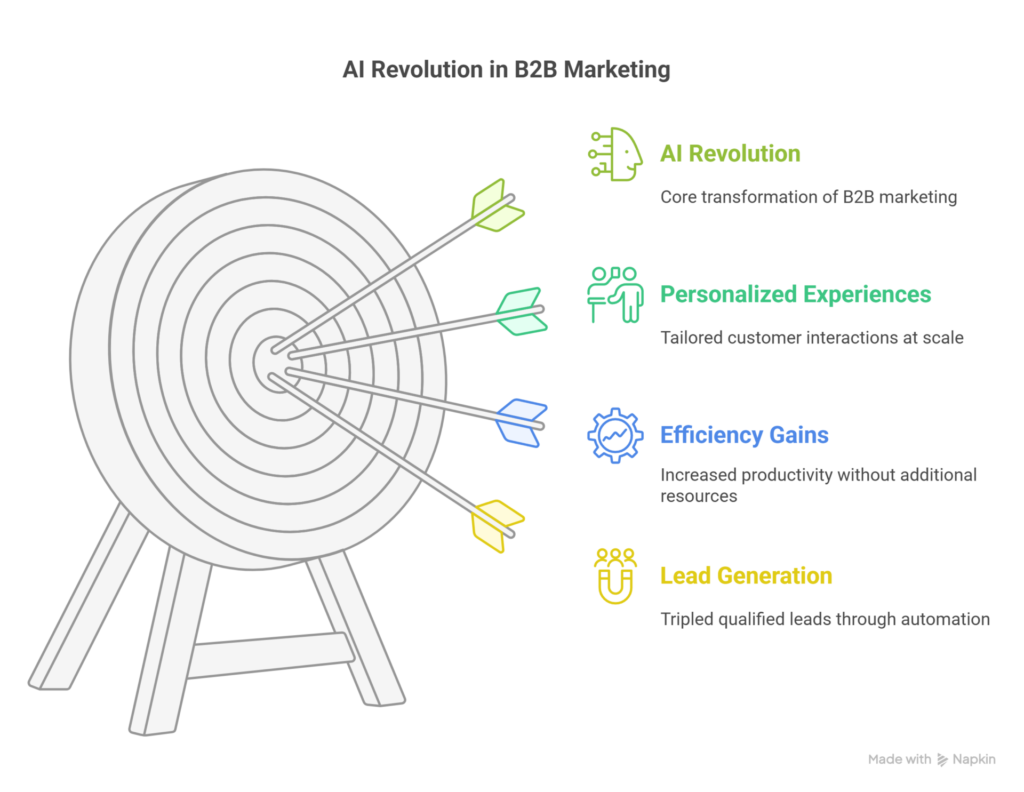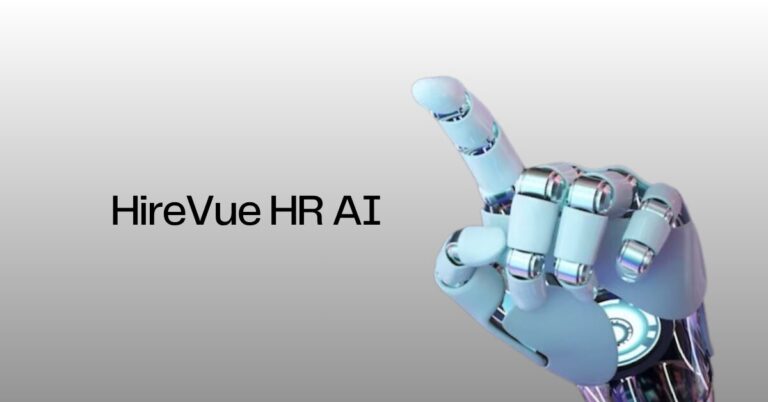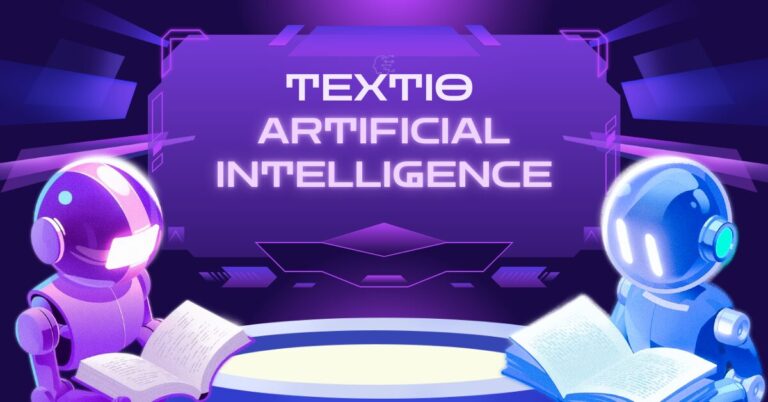How AI is Revolutionizing B2B Marketing Automation
AI in B2B Marketing
You know the nagging feeling when your B2B marketing team spends countless hours on manual tasks while competitors seem to effortlessly scale their campaigns? That’s the gap AI is closing, fast.
I’ve watched dozens of B2B marketing teams triple their qualified leads after implementing AI marketing automation tools—without adding a single team member.
The transformation isn’t just about efficiency. AI is revolutionizing B2B marketing automation by creating genuinely personalized experiences at scale, something that was technically impossible just three years ago.
What’s fascinating isn’t just what these tools can do today, but how they’re completely rewriting the rules about what’s possible in B2B marketing. The company that figured this out first? Their story might shock you.
Understanding the AI Revolution in B2B Marketing – AI in B2B marketing

Key AI technologies transforming B2B marketing
The B2B marketing world isn’t just adopting AI – it’s being completely reimagined by it. Right now, several game-changing technologies are driving this revolution:
- Predictive analytics doesn’t just tell you what happened, it forecasts what’s coming next. B2B marketers are using it to identify which leads are most likely to convert and where to focus resources.
- AI chatbots have evolved beyond basic FAQs. Today’s conversational marketing automation tools engage prospects 24/7, qualify leads, and personalize interactions based on real-time behavior.
- Content automation tools now generate, optimize, and personalize content at scale. Think dynamic email sequences that adapt based on recipient actions and interests.
- Personalization engines have gotten scary good at delivering individualized experiences. AI analyzes thousands of data points to tailor messaging that resonates with specific buyer personas.
The shift from traditional to AI-powered automation
Remember the days of static drip campaigns and one-size-fits-all marketing? Those days are gone.
Traditional marketing automation was like a train on a fixed schedule – rigid, predictable, and inflexible. AI marketing automation is more like a smart car that adjusts its route based on traffic conditions.
The biggest difference? Traditional systems followed predetermined rules. Modern AI-powered platforms learn and adapt. They observe what works, adjust in real-time, and continually optimize for better results.
Current adoption rates and market trends
The numbers don’t lie – AI in B2B marketing is exploding:
- 61% of marketers say AI is their most important data strategy
- Companies using AI for lead generation report 59% better close rates
- 80% of B2B marketing leaders believe AI will revolutionize their field by 2025
What’s driving this rapid adoption? Simple necessity. B2B buyers expect Amazon-level personalization, and only AI can deliver it at scale.
ROI benefits of AI marketing solutions
AI marketing tools aren’t cheap, but the returns are impossible to ignore:
- Time savings: Tasks that once took days now happen automatically
- Conversion improvements: 30%+ increases in lead-to-opportunity conversions
- Customer acquisition costs: Down by 25% on average
- Revenue impact: 20-30% growth in pipeline value
The biggest ROI win? Scale. AI lets small marketing teams punch way above their weight class, executing sophisticated, personalized campaigns that previously required massive teams and budgets.
AI-Enhanced Lead Generation and Qualification – AI in B2B marketing
Predictive Analytics for Identifying High-Value Prospects
Gone are the days of throwing stuff at the wall to see what sticks. AI-powered predictive analytics is changing the B2B lead game completely.
The tech works by crunching thousands of data points about your existing customers – their industry, company size, buying patterns, engagement history – and builds models that spot similar patterns in new prospects. It’s like having a crystal ball that actually works.
Companies using AI in B2B marketing see a 40-60% increase in lead quality. Why? Because the system learns from every win and loss, getting smarter with each interaction.
Automated Lead Scoring and Prioritization
Time is money, especially for sales teams. AI lead scoring does what humans can’t – instantly analyze hundreds of variables to rank leads based on their real conversion potential.
The beauty is in the objectivity. No more “gut feelings” about which leads deserve attention. The AI looks at:
| Lead Factor | What AI Evaluates |
|---|---|
| Engagement | Email opens, content downloads, webinar attendance |
| Firmographics | Industry fit, company size, growth trajectory |
| Behavioral patterns | Website navigation paths, time spent on pricing pages |
| Buying signals | Budget discussions, competitor comparisons |
One marketing automation AI user put it perfectly: “It’s like having a sixth sense for which leads are ready to buy.”
Behavioral Analysis for Deeper Prospect Insights – AI in B2B marketing
AI doesn’t just track what prospects do – it understands why they do it.
Modern behavioral analysis tools can map the entire buyer journey, spotting patterns humans would miss. A prospect who jumps from pricing to case studies to implementation guides? The AI knows they’re showing serious purchase intent.
Some systems can even detect when multiple stakeholders from the same company are researching your solution separately – a massive buying signal that traditional systems overlook.
Real-Time Qualification Systems – AI in B2B marketing
B2B buyers expect immediate responses. AI-powered qualification happens instantly, meeting this demand head-on.
These systems can:
- Qualify leads during their first website visit
- Trigger personalized content based on qualification status
- Alert sales reps to high-value prospects currently on your site
- Adjust qualification criteria as market conditions change
The days of waiting 24 hours for lead qualification are over. Modern AI systems do it in seconds.
Case Studies of Successful AI Lead Generation – AI in B2B marketing
The proof is in the results. Take Snowflake, who implemented AI-driven lead qualification and saw a 40% increase in conversion rates within three months.
Or consider Okta, whose marketing team used predictive analytics to identify their ideal customer profile, resulting in 30% higher average deal sizes.
Even smaller players are winning big. CloudTask deployed conversational marketing automation with AI chatbots for B2B lead capture, boosting qualified leads by 60% while reducing qualification costs by 35%.
The common thread? These companies didn’t just add AI tools – they rebuilt their entire lead generation strategy around AI capabilities.
Personalization at Scale Through AI – AI in B2B marketing
Dynamic content creation and distribution
Ever seen B2B companies sending the exact same content to all prospects and wondered why they’re getting crickets in response? That’s the old way.
AI has completely flipped the script on content personalization. Instead of generic one-size-fits-all materials, AI algorithms now analyze user behavior patterns and create tailored content instantly.
A manufacturing company I worked with implemented AI content automation that increased engagement by 67% in just three months. Their system now automatically adjusts product specs, use cases, and ROI calculations based on the specific industry of each visitor.
What makes this so powerful is scale. With AI-powered marketing automation, you can personalize thousands of interactions simultaneously without adding headcount.
Key AI Personalization Benefits:
- Creates unique content variations in seconds
- Delivers through preferred channels at optimal times
- Adjusts messaging based on engagement patterns
- Learns continuously from interaction data
Individual buyer journey mapping – AI in B2B marketing
The B2B buying journey isn’t a straight line—it’s more like a maze with different stakeholders wandering in different directions.
AI doesn’t just recognize this complexity—it thrives on it. Through predictive analytics marketing, AI systems can now track individual buying committee members and their unique concerns.
Think about what this means: Your VP of Finance prospect sees financial justification content while the IT Director gets technical implementation details—automatically.
This level of AI personalization for B2B creates what feels like a custom experience for each decision-maker. One enterprise software company I know increased conversion rates by 43% after implementing AI journey mapping that delivered different content tracks to technical evaluators versus business decision-makers.
Account-based marketing automation – AI in B2B marketing
ABM used to require painstaking manual work. Now? AI does the heavy lifting.
Modern AI in B2B marketing doesn’t just personalize for individuals—it orchestrates entire account-based campaigns. The systems identify buying signals across multiple contacts within target accounts and coordinate outreach accordingly.
The magic happens when AI starts predicting which accounts are showing buying intent before your sales team would normally notice. One technology firm I advised uses AI to analyze over 50 different account signals to prioritize their top 100 target accounts daily.
Their AI implementation automatically:
- Adjusts outreach cadence based on engagement levels
- Personalizes content themes for each account’s industry challenges
- Coordinates messaging across marketing channels and sales touchpoints
- Recommends next best actions for sales reps
This isn’t just incremental improvement—it’s a fundamental shift in how B2B marketing works.
Conversational Marketing and AI Chatbots – AI in B2B marketing
24/7 Prospect Engagement Capabilities
Gone are the days when your marketing team clocked out at 5 PM while potential leads browsed your site at midnight. AI chatbots have completely flipped the script on prospect engagement. They’re always on, always ready, and never need a coffee break.
What makes this game-changing for B2B? Your prospects are often researching solutions outside business hours, and waiting until morning to address their questions might mean losing them to a competitor who responds instantly.
Modern AI chatbots for B2B don’t just answer questions – they qualify leads, schedule demos, and provide valuable content while your team sleeps.
Intelligent Conversation Routing – AI in B2B marketing
AI doesn’t just chat with prospects – it knows exactly when to hand conversations off to humans. Smart routing is where conversational marketing automation truly shines.
The AI analyzes conversation context, question complexity, and buying signals to determine:
- Which prospects need immediate human attention
- Who’s just browsing and needs nurturing
- When to escalate to sales versus keeping in marketing
- Which team member is best suited to handle specific inquiries
This intelligent triage ensures high-value prospects get human attention while routine inquiries are handled automatically – maximizing your team’s effectiveness.
Data Collection Through Natural Interactions – AI in B2B marketing
Here’s the magic trick: AI chatbots gather crucial prospect data without making it feel like an interrogation.
Through casual conversations, these bots collect:
- Pain points and challenges
- Budget considerations
- Decision-making timelines
- Competitive solutions being evaluated
This natural approach yields higher-quality data than traditional forms. Prospects share more when engaged in conversation than when filling out fields.
Integration With CRM Systems – AI in B2B marketing
The data collected isn’t siloed – it flows directly into your CRM, creating a seamless experience for both prospects and your team.
When a chatbot conversation transitions to a sales rep, they instantly see the full conversation history and collected insights. No awkward “can you repeat everything you just told the bot?” moments.
This integration creates a continuous prospect journey where information flows from marketing automation to sales seamlessly, eliminating the frustrating disconnects that plague traditional lead handoffs.
Predictive Analytics and Customer Insights – AI in B2B marketing
Forecasting buyer behavior patterns
Think about it – what if you could know which leads are ready to buy before they do? That’s exactly what AI in B2B marketing delivers through predictive analytics.
AI systems analyze thousands of data points across your customer interactions, spotting patterns humans simply can’t see. These algorithms track everything from website visits and content engagement to email responses and past purchasing behaviors.
Top B2B companies are using these insights to predict:
- Which prospects match their ideal customer profile
- When specific accounts are entering buying cycles
- What content will move prospects through the funnel fastest
Identifying upsell and cross-sell opportunities – AI in B2B marketing
Gone are the days of guessing which existing customers might want more. AI examines your customer base, finding hidden expansion opportunities based on:
- Usage patterns suggesting readiness for premium features
- Behavioral signals matching those of customers who previously upgraded
- Changes in company size or structure indicating new needs
Churn prediction and prevention strategies – AI in B2B marketing
The brutal truth? Most companies learn about unhappy customers after they’re gone. AI predictive analytics flips this completely.
By monitoring engagement metrics, support tickets, and product usage, AI flags at-risk accounts before they cancel. This gives your team time to intervene with targeted retention campaigns.
Competitive intelligence gathering – AI in B2B marketing
AI doesn’t just analyze your data – it can monitor competitor movements too. Advanced marketing automation platforms track:
- Shifts in competitor messaging and positioning
- Changes in their pricing strategies
- New market segments they’re targeting
AI-Powered Content Marketing Automation – AI in B2B marketing
Content Creation and Optimization Tools
Gone are the days of guessing what content will resonate with B2B buyers. AI-powered tools now handle everything from topic generation to writing full drafts. Tools like Jasper and Copy.ai can produce blog posts, email sequences, and social media content that actually sounds human.
What’s really cool? These AI systems learn your brand voice. Feed them your existing content, and they’ll mimic your style while optimizing for SEO keywords like “AI in B2B marketing” without the awkward keyword stuffing we all hate.
Some B2B companies are cutting content production time by 70% using these tools. That’s not just efficiency—it’s a complete game-changer for scaling content operations.
Smart Content Distribution Systems – AI in B2B marketing
The best content means nothing if nobody sees it. AI distribution systems are solving this by analyzing:
- When your specific audience is most active online
- Which channels drive actual engagement (not just clicks)
- What content formats convert for different buyer personas
Instead of blasting content everywhere and hoping something sticks, AI pinpoints exactly where your B2B decision-makers hang out online and serves them the right content at the right moment.
Performance Analysis and Recommendation Engines – AI in B2B marketing
AI doesn’t just create and distribute content—it closes the loop with analysis that makes marketers smarter.
These engines track every interaction, identifying patterns humans would miss. They’ll tell you things like: “Technical decision-makers engage more with case studies on Tuesdays” or “Financial stakeholders respond better to video content under 2 minutes.”
The best part? These insights get looped back into your content strategy automatically, making each campaign smarter than the last.
Implementation Strategies for AI Marketing Tools – AI in B2B marketing
Assessing Organizational Readiness
Starting your AI marketing journey without checking if you’re ready? That’s like jumping into the deep end without knowing how to swim.
First, audit your current marketing processes. Which parts are eating up your team’s time? Those are prime candidates for AI automation. A B2B software company I worked with discovered their content creation and lead scoring processes were major time-sinks—perfect for AI implementation.
Next, evaluate your team’s technical skills. Do you have people who understand both marketing and technology? If not, you’ll need to either train existing staff or bring in new talent.
Your budget matters too. AI marketing tools for B2B aren’t cheap, but they’re investments. Calculate potential ROI before committing.
Building the Right Tech Stack – AI in B2B marketing
The AI marketing landscape is crowded, and not all tools play nice together.
Start small—don’t try to overhaul everything at once. Maybe begin with AI chatbots for basic lead qualification before diving into predictive analytics.
Consider integration capabilities carefully. Your AI tools need to work with your:
- CRM system
- Marketing automation platform
- Analytics tools
- Content management system
One manufacturing client tried implementing five different AI tools simultaneously. The result? A technical nightmare and frustrated teams. They scaled back to implementing one tool every quarter instead.
Data Requirements and Preparation – AI in B2B marketing
Here’s the cold, hard truth—AI marketing tools are only as good as the data you feed them.
Before implementation, clean your existing data. That means:
- Removing duplicates
- Standardizing formats
- Filling in missing information
- Consolidating data sources
Establish data governance policies to keep information flowing correctly. Who owns what data? How often is it updated? Who can access it?
You’ll also need to consider data privacy regulations like GDPR and CCPA. AI personalization for B2B is powerful, but it must be compliant.
Change Management and Team Training – AI in B2B marketing
New tech often fails because people resist using it—not because the technology itself is flawed.
Create a phased rollout plan with clear communication at every step. Explain the “why” behind AI implementation—how will it make your team’s jobs easier?
Develop targeted training programs. Your content team needs different skills than your analytics team. A custom training approach works better than one-size-fits-all sessions.
Identify AI champions within your organization who can help their peers adapt. These early adopters become invaluable for building organization-wide acceptance.
Measuring Success and Continuous Improvement – AI in B2B marketing
If you can’t measure it, you can’t improve it. Set specific KPIs before implementation:
| Objective | Potential KPIs |
|---|---|
| Lead Generation | Conversion rate, cost per qualified lead |
| Content Creation | Production time reduction, engagement metrics |
| Customer Insights | Prediction accuracy, revenue influenced |
| Sales Support | Deal velocity, win rate improvements |
Schedule regular reviews of your AI tools’ performance. Are they delivering the expected value? Where are the gaps?
Remember that AI marketing tools learn and improve over time. The predictive analytics that seem just okay today could become remarkably accurate with more data and refinement.
The integration of AI into B2B marketing automation represents a transformative shift that’s reshaping how companies identify, engage, and convert prospects. From intelligent lead scoring that prioritizes high-value opportunities to personalized content delivery at scale, AI tools are eliminating guesswork and manual processes while delivering unprecedented insights. Conversational AI and predictive analytics are further enabling marketers to create more meaningful customer interactions based on behavioral patterns and future needs.
As you consider implementing AI marketing solutions for your organization, start with a clear assessment of your current challenges and goals. Begin with smaller, focused applications that address specific pain points before expanding to more complex implementations. Remember that while AI offers powerful capabilities, it works best when guided by human creativity and strategic thinking. The most successful B2B marketing teams will be those that effectively balance technological innovation with authentic human connection.







One Comment